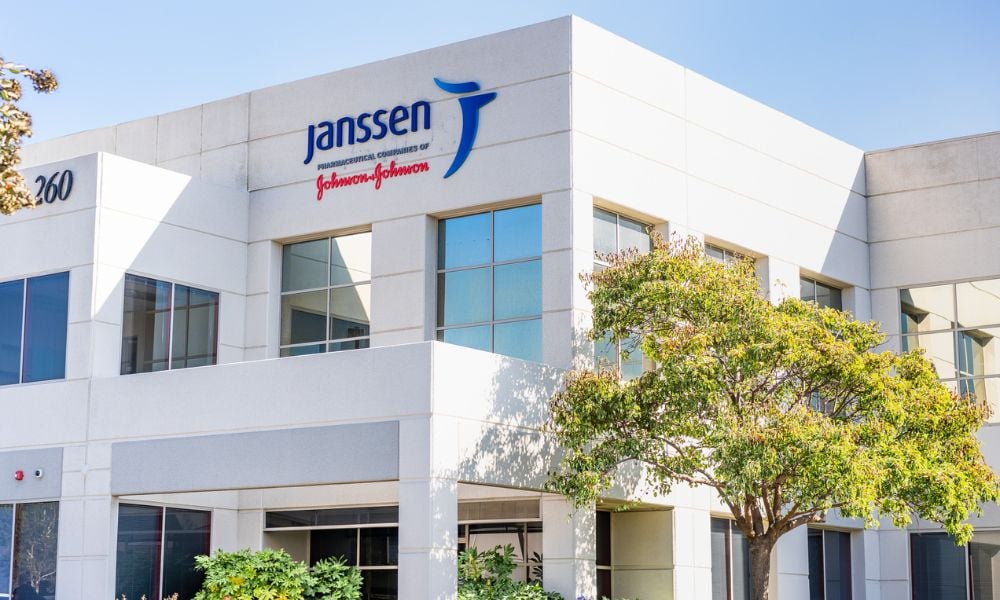
Companies claimed lost sales after Janssen's unsuccessful defense of patent

The Federal Court has refused to consolidate individual lawsuits for damages filed by three pharmaceutical companies against Janssen because hearing the cases together would not achieve the most efficient resolution of the matters in issue.
In Apotex Inc. v. Janssen Inc., 2022 FC 1473, Janssen markets prostate cancer drug abiraterone acetate in Canada as ZYTIGA, which is listed in the patent register as the 422 Patent. Apotex, Dr. Reddy’s Laboratories, and Pharmascience each sought to market a generic abiraterone acetate product, so they each challenged Janssen’s 422 Patent. In turn, Janssen commenced an action against these pharmaceutical companies. However, Janssen’s action was dismissed, and its 422 Patent was declared invalid.
Following the invalidation of Janssen’s patent, Apotex, Dr. Reddy’s and Pharmascience each filed a lawsuit against Janssen, claiming damages for lost sales of their respective abiraterone products. Janssen filed a motion asking the Federal Court to direct that the trials in the actions filed separately by the three pharmaceutical companies be heard together. The court, however, ruled that an order to have the three actions be heard together would not achieve the most efficient resolution of the matters in issue in these actions.
Janssen’s motion was anchored on Rule 105(a) of the Federal Court Rules, which empowered the court to order that evidence on a subset of common issues be heard together, with the remainder of the trials taking place separately. The factors that the court must consider in deciding whether to grant an order under Rule 105(a) include the commonality of the parties, issues, facts, and remedies, and whether prejudice will result from the making of the order.
Janssen identified four issues common in the plaintiff’s actions – the ability and motivation of each of the five non-parties to enter the generic abiraterone acetate market; the ability and motivation of each of the plaintiffs to enter that market; Janssen’s allegation that post-genericization of the abiraterone acetate market, it would have reduced its marketing of ZYTIGA and shifted these efforts to another prostate cancer product marketed by Janssen; and the effect of Janssen’s decreased promotion of ZYTIGA upon the size of the total abiraterone acetate market. Janssen said it would provide essentially the same evidence for these issues in three separate proceedings.
The court, however, found there was a lack of commonality of the parties. When assessing prejudice, the involvement of different and unrelated plaintiffs who may adopt different approaches to the litigation in the pursuit of their respective claims, militated against ordering a common issues trial. Janssen had failed to satisfy the court that the level of commonality it asserted in support of its motion warranted a conclusion that ordering a common issues trial would be in the interests of achieving the most efficient resolution of the matters in issue in these three actions.
While prejudice was not the only factor to consider in making a determination under Rule 105, it carried a great weight, the court said. The plaintiff pharmaceutical companies asserted that Janssen had the burden of showing that it would be prejudiced should the order not be granted and that it would not be abusive or prejudicial to the responding parties to make the order sought. Janssen argued that it would suffer prejudice if common evidence that was the subject of its motion was heard at three separate trials.
The court emphasized that a party moving under Rule 105 must prove prejudice rather than a mere inconvenience. However, the court found that the potential prejudice advanced by the plaintiffs were sufficient individually to outweigh the prejudice advanced by Janssen. The court concluded that the prejudice to the plaintiffs militates strongly against granting the relief Janssen requested so the court dismissed Janssen’s motion to have the trials heard together.